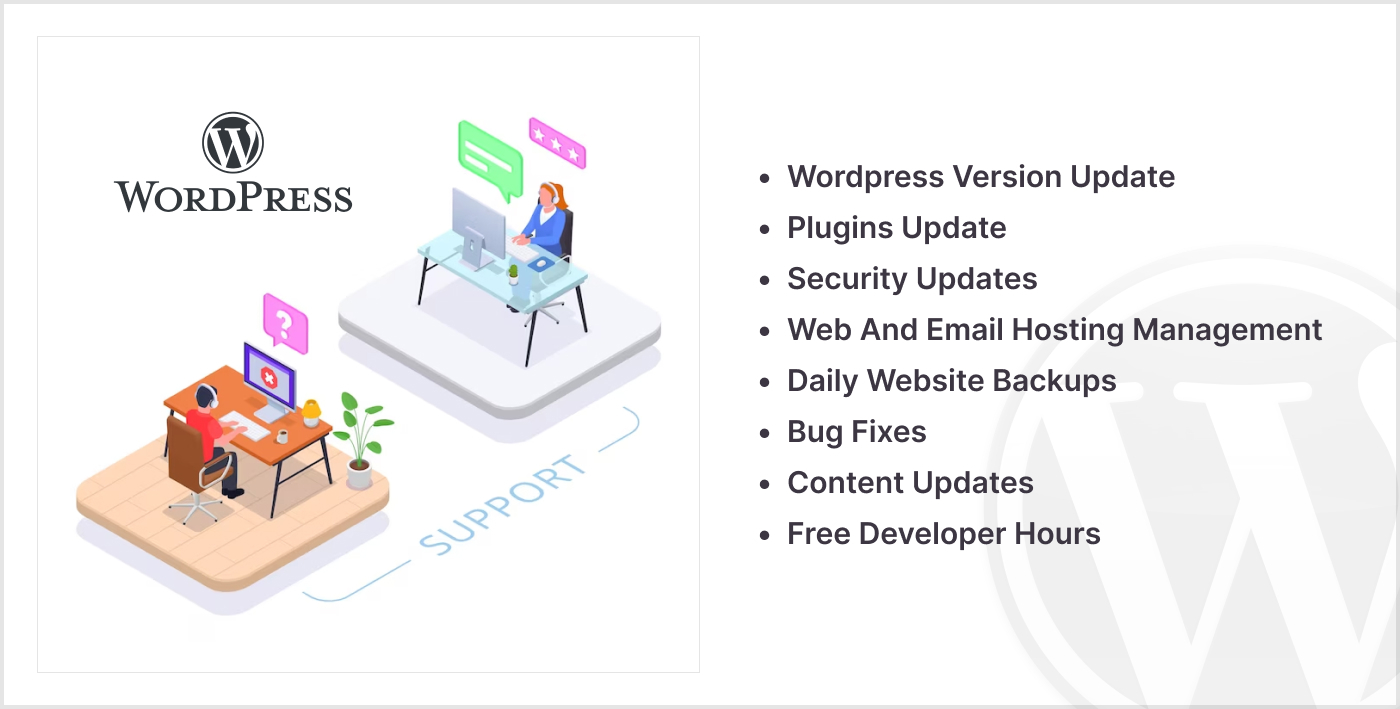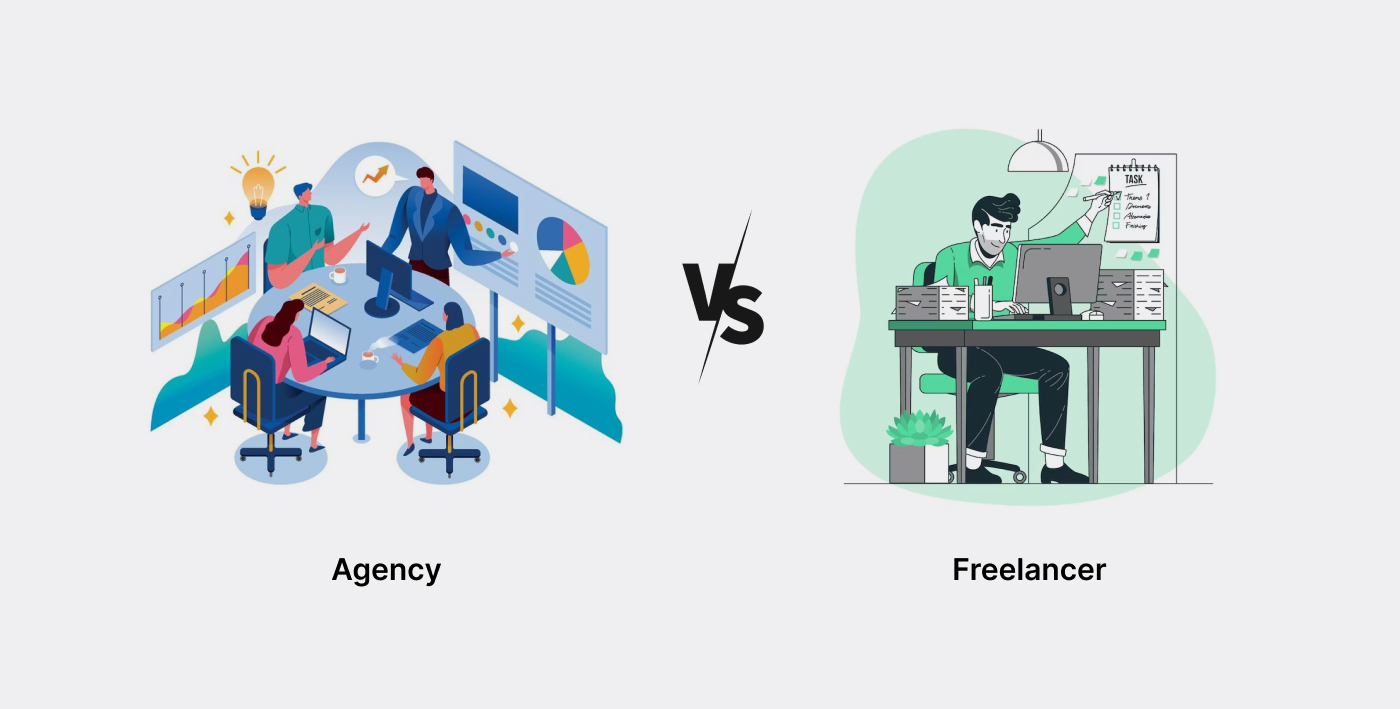
Simply creating a WordPress website is just the start; continuous WordPress maintenance and promotion is the key to achieve success. While it might be tempting to treat your website as a ‘set-it-and-forget-it’ task, the truth is, as you spend time and money on marketing, the need for ongoing WordPress site maintenance becomes more important as you don’t want to lose any opportunity coming your way.
Keeping up with WordPress websites is more complex than it appears. It involves regular maintenance, updates, and upgrades for various elements like WordPress itself, themes, plugins, web hosting, SSL, email hosting, content, graphics, and much more. Managing all these aspects can be overwhelming, even for seasoned entrepreneurs with a tech background.
Trying to do it all alone can quickly become overwhelming, diverting your attention from important tasks such as attracting more visitors to your site, promoting your business at events, networking, and digital marketing.
Does WordPress truly need maintenance?

The WordPress platform in itself offers robust functionality but as they build things on top of their software using plugins, widgets and custom coding to meet your business needs it needs regular maintenance to keep it running smoothly.
What your WordPress website support and maintenance should include?
WordPress website support and maintenance are crucial for several reasons:
-
WordPress version update
A WordPress version update refers to the release of a newer iteration or version of the WordPress software. These updates typically include enhancements, new features, security fixes, and improvements to the existing functionalities of the platform.
WordPress websites should always be on the latest stable version of WordPress to get the benefits of new features and security updates released by WordPress.
WordPress frequently releases updates to:
- Improve Security: Address vulnerabilities and security issues to protect websites from potential threats.
- Enhance Features: Introduce new functionalities, tools, or improvements to existing features to enhance user experience and site performance.
- Fix Bugs: Resolve any identified issues, bugs, or errors present in the current version of WordPress.
-
Plugins update
A WordPress plugin update refers to a new version release of a particular plugin installed on a WordPress website. Plugins are add-ons or extensions that provide additional functionalities to a WordPress site beyond its core features.
Similar to WordPress version update, it is critical to regularly update the plugins as well
Plugin updates typically include:
- Bug Fixes: Addressing any identified issues, errors, or bugs present in the current version of the plugin.
- Security Patches: Fixing vulnerabilities or security loopholes to enhance the plugin’s resilience against potential threats.
- Feature Enhancements: Introducing new features, improvements, or optimizations to the existing functionalities of the plugin.
-
Security updates
Updating the WordPress and Plugins is not enough to make your website running smoothly. There should be an added layer of security to make sure that if there is a virus attack, your site shouldn’t only prevent and also proactively stop future attacks.
Security updates typically include the following:
- Enable 2FA: Activating two-factor authentication on user accounts so that hackers cannot access your WordPress site’s backend, even if they somehow obtain your password.
- File add/edit restriction: Disallow unauthorized file additions or edits to ensure that hackers cannot make any changes to the website, even if they manage to access the site by exploiting a plugin or WordPress core files.
- Firewall: Installing a firewall on your server to block IP addresses known for hacking, DDoS attacks, brute force attacks, and more from accessing your website.
- Installation of Security plugin: There are tons of good security plugins that further enhances the security of your website so installation of these plugins should be part of security strategy of your wordpress maintenance plan
-
Web and Email hosting management
Many times web and email hosting management is the most overlooked aspect of wordpress website care plan however it is one of the most important ones. Similar to WordPress and Plugins needing an update, your server may need an upgrade once your website has so many pages, pictures, videos or plugins.
-
Daily website backups
Your care plan ought to include off-site backups stored in multiple locations such as third party servers, dropbox or aws servers, offering heightened security. These backups can be scheduled on a daily, weekly, or monthly basis
-
Bug fixes
Quick resolution of any issues or bugs that might occur on your website. This covers troubleshooting errors, fixing broken links, and resolving various technical issues promptly
-
Content updates
Incorporating new content, images, or other media files may require additional support. Your support plan should encompass the creation of one or two new content based pages per month, if necessary
-
Free Developer Hours
The inclusion of free designer/developer hours in the WordPress care plan enables you to enhance your site with fresh graphics and functionality, tailored to your business requirements. Whether it’s installing a chat plugin, integrating third-party software to capture leads from your website, or addressing a myriad of other potential needs, having a couple of hours of designer or developer support each month can accommodate various enhancements.

Should I hire an agency or a freelancer?
Hiring a wordpress website maintenance service agency versus a freelancer comes with several differences that can impact your decision-making process. Here are some key distinctions:
Expertise and Resources
- Agency: Website maintenance service agencies often have a team of specialists. They might offer a broader range of services, including wordpress developers, wordpress designers, SEO experts, and marketers, allowing for comprehensive support.
- Freelancer: A freelancer typically works alone, offering specialized skills. They might excel in a particular area but might have limitations in providing a wide spectrum of services.
Workload Capacity and Timeliness
- Agency: Agencies may handle multiple clients simultaneously due to their larger workforce, potentially affecting availability and responsiveness.
- Freelancer: Freelancers usually handle fewer clients at a time, offering more personalized attention and potentially quicker response times.
Cost and Pricing Structures
- Agency: Agencies might have higher costs due to overhead expenses like office space, salaries, and infrastructure. They often have structured pricing models.
- Freelancer: wordpress freelance developers might offer more flexible pricing structures and could be a cheaper option due to lower overheads.
Reliability and Stability
- Agency: Agencies tend to offer more stability, having backup resources to ensure continuity even if one team member is unavailable.
- Freelancer: Reliability might depend on the individual freelancer’s commitment and availability, posing potential risks if they become unavailable suddenly.
Communication and Accountability
- Agency: Agencies may have dedicated account managers and structured communication processes, ensuring clear lines of communication.
- Freelancer: Direct communication is often easier with freelancers, offering a more personalized and direct interaction.
Scalability and Flexibility
- Agency: Agencies can often scale their services more readily to accommodate changing needs or growing businesses.
- Freelancer: Freelancers might be more adaptable and flexible in tailoring their services to suit specific requirements.
Ultimately, the choice between a website maintenance agency and a freelancer depends on your specific needs, budget, and preferences. Consider factors like the complexity of maintenance required, the level of support needed, your budget constraints, and the criticality of your website’s ongoing operations when making your decision.
Originally published at https://www.cgcolors.com on December 04, 2023

